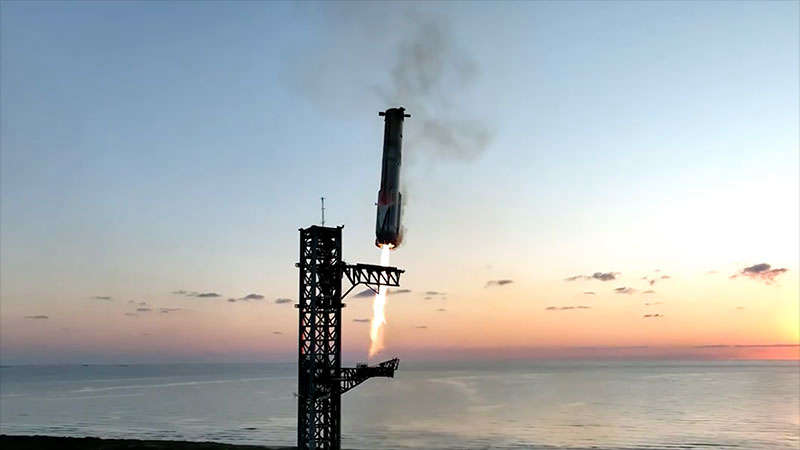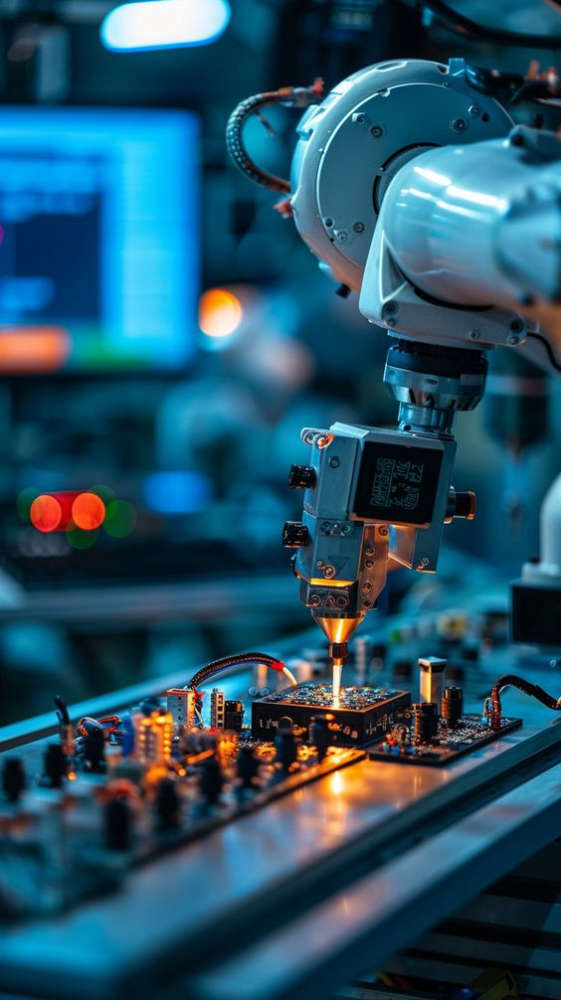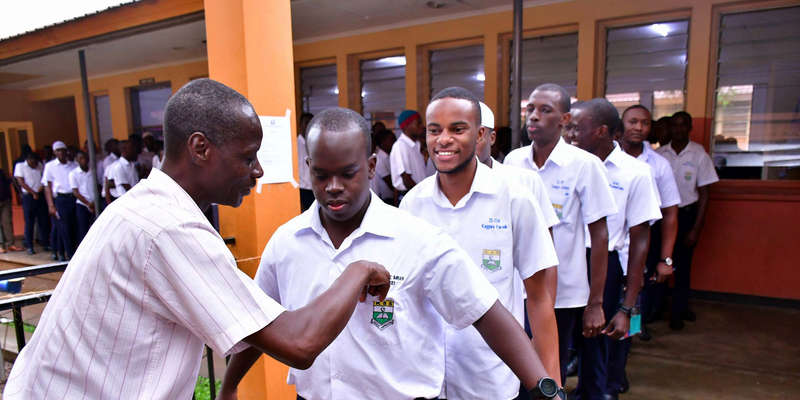
On Sunday, SpaceX marked a major milestone in the realm of space exploration with the successful launch of its Starship rocket and the groundbreaking recovery of its booster using mechanical arms. This historic achievement, unfolding at SpaceX’s Texas launch facility, signals a bold leap forward for the company’s ambitious quest to create fully reusable rocket systems—an endeavor that could reshape the economics of space travel and drive human exploration deeper into the cosmos.
On Sunday, SpaceX marked a major milestone in the realm of space exploration with the successful launch of its Starship rocket and the groundbreaking recovery of its booster using mechanical arms. This historic achievement, unfolding at SpaceX’s Texas launch facility, signals a bold leap forward for the company’s ambitious quest to create fully reusable rocket systems—an endeavor that could reshape the economics of space travel and drive human exploration deeper into the cosmos.
At the core of this mission is a vision to make space exploration more affordable, sustainable, and repeatable. The development of reusable rockets is no longer just a futuristic concept, but a rapidly advancing reality. Imagine a rocket capable of launching, returning to Earth, and launching again without being discarded after a single use. This shift could cut the cost of space travel dramatically, and Sunday’s flight was the clearest demonstration yet of that possibility. The recovery of the booster using mechanical arms, playfully dubbed "chopsticks," felt like something out of a sci-fi movie, only this time, it was real—an impressive step in catching and reusing rockets for future missions.
However, this triumph comes after a long road littered with challenges. For years, SpaceX has been pioneering reusable rocket technology, with varying degrees of success. The company began perfecting this concept with its Falcon 9 rockets, which have been reused on multiple occasions since 2017. Yet, the Starship system is a different beast altogether. It is larger, more complex, and destined for longer missions—to Mars and beyond. The hurdles SpaceX faced in mastering it were just as massive.
The Super Heavy booster, which powers the Starship, has undergone multiple test flights, and not all have gone according to plan. In fact, failure has been a frequent companion along this journey. Four consecutive Starship prototypes exploded during landing attempts in 2021. The March 2021 flight, though seemingly successful, ended in an unexpected explosion minutes after touchdown, due to a methane leak. It was only after these numerous setbacks that SpaceX found success, inch by inch, learning from each failure and improving its systems with each test. Fast forward to October 2024, and after more than a dozen launches—many of them flawed—SpaceX finally achieved a flawless booster catch using the mechanical arms, marking a major breakthrough.
What does this mean for the future? SpaceX’s vision for Starship is nothing short of revolutionary. The company is designing a system capable of carrying humans to the Moon, Mars, and perhaps even deeper into space. The ability to recover boosters mid-air for reuse could lower costs and increase the frequency of launches, making the dream of regular space travel far more attainable. Elon Musk’s long-term plan to colonize Mars rests heavily on these developments, and each successful test brings that vision closer to reality.
But beyond the technical feats and grand visions for space exploration, there’s a deeper message here—especially for those aspiring to make their mark in fields like engineering. For Ugandans dreaming of becoming engineers, SpaceX’s journey is a testament to the power of persistence and innovation. Whether you’re studying mechanical, electrical, or even aerospace engineering, the lessons from SpaceX are clear: the road to success is paved with failures, and each setback is an opportunity to refine, improve, and innovate.
Engineering is not just about solving problems—it’s about reimagining the future. As industries evolve and expand, engineers in Uganda have the chance to participate in global conversations and developments. From telecommunications to renewable energy, the possibilities are endless. The space industry might seem distant, but the principles driving SpaceX’s achievements—perseverance, creativity, and learning from mistakes—are universal.

 CANEX Mega Concert: Celebrating Creativity at IATF 2025
CANEX Mega Concert: Celebrating Creativity at IATF 2025
 Inside IATF 2025: Africa’s Biggest Trade Fair Is Happening in Algiers
Inside IATF 2025: Africa’s Biggest Trade Fair Is Happening in Algiers
 What the SpaceX's groundbreaking advancements mean to you as an Engineering Student in Uganda.
What the SpaceX's groundbreaking advancements mean to you as an Engineering Student in Uganda.
 Makerere University’s Iconic Ivory Tower Reopens After Major Renovation
Makerere University’s Iconic Ivory Tower Reopens After Major Renovation
 Comparison of the 2023 and 2024 U.C.E. Examination Timetables
Comparison of the 2023 and 2024 U.C.E. Examination Timetables
 NRG Radio Uganda Wins East Africa Arts Entertainment Award for Best Radio Station in East Africa.
NRG Radio Uganda Wins East Africa Arts Entertainment Award for Best Radio Station in East Africa.
 Your Journey To Stardom Starts Here.
Your Journey To Stardom Starts Here.
 Swangz Avenue's All-Star Album: A Ugandan Sound Explosion
Swangz Avenue's All-Star Album: A Ugandan Sound Explosion
 NRG Radio is Not Childish, You Are Not The Target Audience. - Zion Kente
NRG Radio is Not Childish, You Are Not The Target Audience. - Zion Kente







Comments
Add a comment